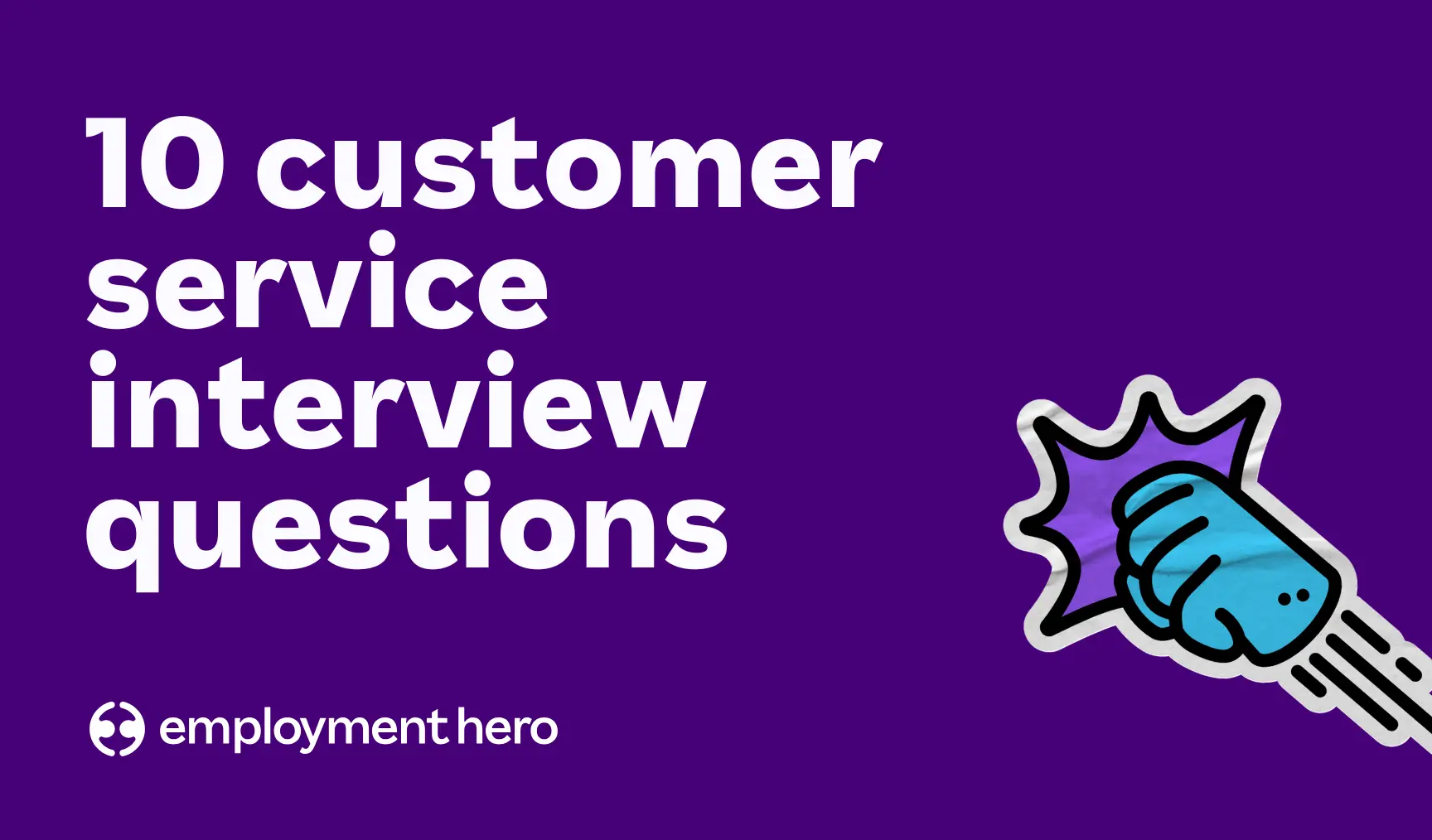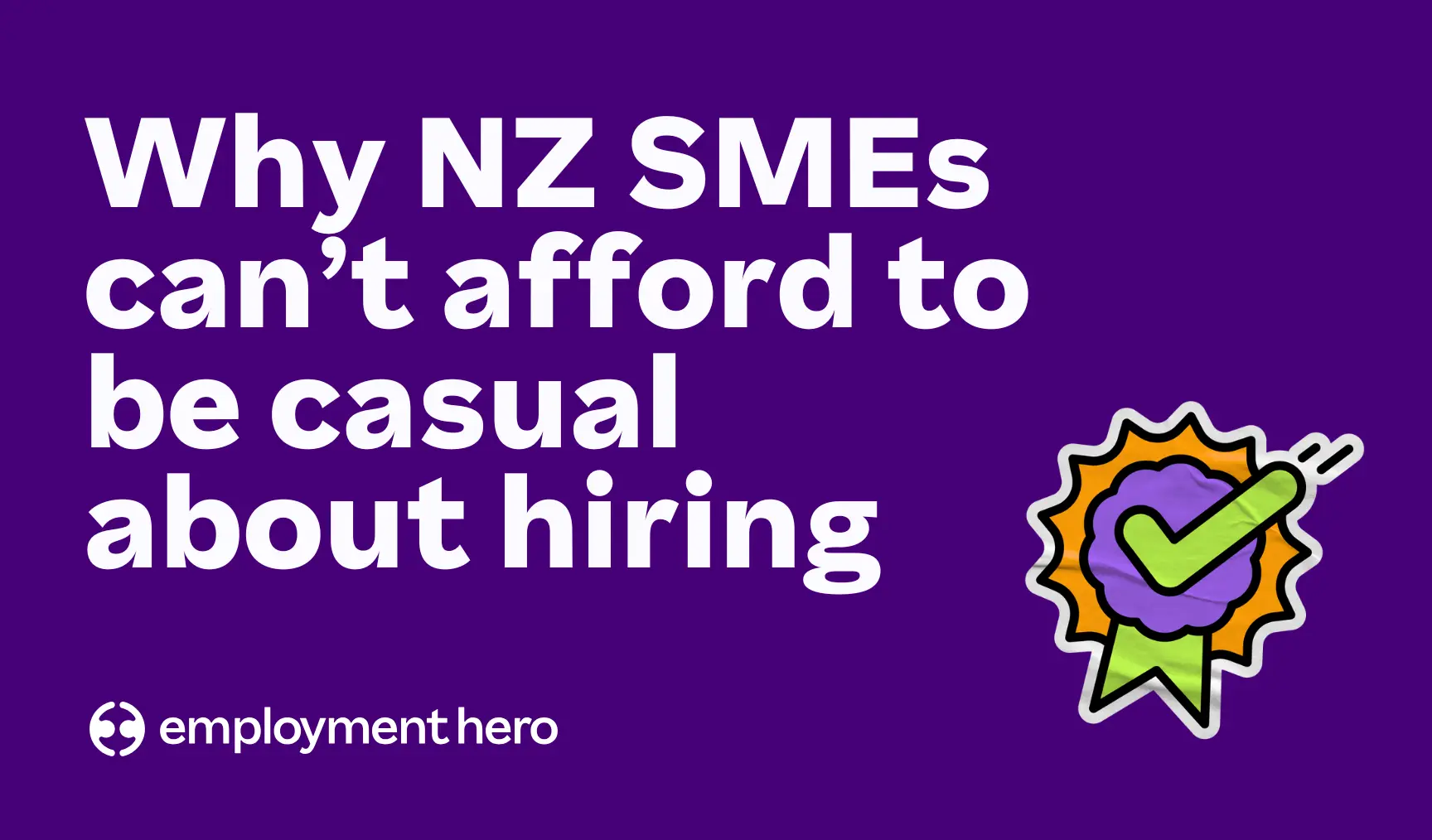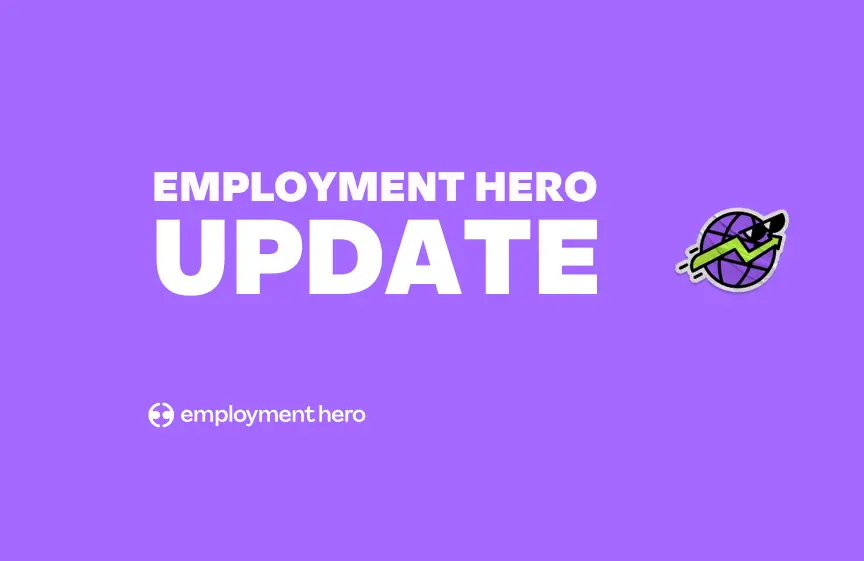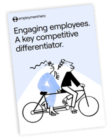What is an employee value proposition (EVP), and why is it important?
Your EVP is your secret weapon to attract and retain top talent. But what is it, why is it important, and how do you create one that stands out? Let’s find out.

Our State of Recruitment Report showed that SMEs spend more than $6,000 on hiring per vacancy. When the stakes are that high, getting your employee value proposition right is essential to getting a solid return on your investment.
Okay, but what exactly is it?
An employment value proposition refers to the benefits an employer offers to its employees and potential hires. Having a defined EVP is key to an employer’s ability to attract and retain top performers, who can help propel the business forward.
Whether you’re looking to build an EVP from the ground up or just want to level up your existing one you’re in the right place.
Employee value proposition examples
An employee value proposition is a unique value that a company can offer its employees. An EVP should also shift focus from compensation to other things, such as employee development paths, internal reward and recognition programs and community initiatives.
- An office bar? Work gym? Generous leave allowances? This is part of your EVP.
- Proud of the work-life balance in your team? That’s also part of your EVP.
- Strong diversity, equity and inclusion culture? Definitely part of your EVP.
- Got any fancy team-building events on the regular? Yes, that’s your EVP too.
Your employee value proposition includes all the incentives, perks, benefits and support systems you offer to make your workplace more attractive, especially when compared to your competitors.
Why is a strong employee value proposition important?
Your EVP is what sets you apart from the competition when you’re hiring. With hiring costs only growing, and top talent in short supply, it’s more important than ever to craft something compelling.
Helps attract talent
It’s crucial you have a strong EVP that will help you attract and retain the best employees possible to help grow your business. Having an effective EVP can help to attract new employees that have goals and values that align with your business.
When done well, a compelling EVP gives candidates a clear picture of the role and company culture, helping them determine whether they’re a strong fit from the outset.
Improves company reputation
A good employee value proposition will also elevate your entire employment brand, making your business a more desirable place to work. Everyone has, at one point or another, heard whispers of a business that may have a shiny facade but conceals less than ideal workplace culture.
Employees (and customers) talk, and you want to ensure what they have to say reflects positively on your employees’ experience.
Reduces employee turnover
Job seekers are actively looking for positive employer branding, making it an important aspect of your recruitment process to pay attention to. Companies with a strong EVP can reduce annual employee turnover and increase new hires.
If you’re having trouble recruiting and retaining talent, it might be time to overhaul your EVP.
Things to consider when developing an EVP
When developing your EVP, there are a few things to consider. The best place to start? Ask current employees what they love about working for your company. Why start from scratch when you might already be doing some amazing things that employees and candidates love? Whether you do it over a casual coffee catch up, a 1:1, a team meeting or formal, anonymous employee surveys, you’ll gain valuable insight to help form the basis of a great EVP and figure out what you already do well.
Maybe they love the way you champion their career development, or perhaps you promote a great work-life balance through flexible working arrangements. Whatever they share with you will put you in a great position to start creating your unique EVP.
Here are some of the other factors to consider when developing your EVP.
What if I can’t meet employee salary expectations?
There’s no doubt salary is an important part of the puzzle for employees. But when you’re already working with tight budgets, it can be difficult to compete financially with the big guys. While we always recommend reviewing employee salaries against industry benchmarks, we understand it can sometimes be out of reach.
Fortunately, salary isn’t the only way to gain a competitive edge. Of course, you never want to undervalue potential employees, so it’s essential you find alternatives if you can’t meet their salary requirements.
That could mean clearly articulating how you’ll support them to develop their core skills through development and learning opportunities, mentorship arrangements, or something else. Whatever it is, just make sure you communicate it clearly, and repeatedly, across your job ads, career pages and other channels.
Rewards and recognition
Candidates don’t just look at salary, they also look at reward and recognition, employment benefits and all the perks associated with a job. In other words, top candidates are looking at the entire compensation package rather than just the monetary amount. Rewards and recognition, or employee benefits, come in three forms:
- Supplementary compensation: Free coffee, health insurance, gym memberships, flexible working, caregiver support, company-sponsored holidays, employee share schemes (the list is endless, just budget-dependent).
- Values, mission and purpose: Making them feel like their job really matters, which is a key driver to boosting employee engagement.
- People and culture: Great people want to work with great people, and creating a positive work environment is a surefire way to make people feel excited about coming to work every day.
Company culture
We’ve previously put the spotlight on the importance of company culture within a business. If you offer regular staff events, incentive schemes, rewards or competitions, make sure to highlight these from the outset.
Express these clearly in your EVP, and remember, with platforms like LinkedIn potential hires can reach out to past employees. Don’t just speak your organisation’s values, live them. Ensuring your company culture is healthy and genuine will make your business more appealing. There is nothing more damaging to your reputation than promising something that employee reviews do not reflect.
Employee value proposition vs. employer value proposition
While the terms may seem interchangeable, your employee value proposition and employer value proposition are two sides of the same coin. Employee value proposition refers to the tangible benefits, rewards, and culture offered internally to your employees.
What about employer brand?
Your employer value proposition determines your employer brand – that is, how you’re perceived externally by potential hires. To stand out from the competition, SMEs must ensure that they have a strong employer value proposition in order to elevate their employer brand.
Avoiding the common pitfalls of an EVP
A strong employer brand is crucial in helping you attract, engage, and retain high-quality employees. It signals to potential applicants why they should choose your business and sets clear expectations around employee experience. But in building an EVP, there are two common traps that many businesses fall into:
- Under-selling the things that differentiate them as an employer, such as certain qualities, behaviours and experiences
- Selling an experience that isn’t accurate
The best way to avoid these pitfalls is by asking your current employees with this three-step approach:
- Get feedback from employees: Run surveys or focus groups to understand what your people value, their motivations, behaviours, and perceptions of your business.
- Consolidate and test: Use the insights gathered to shape your employee value proposition, then test it with new hires to see if it reflects their real experience.
- Validate and iterate: Gather input from the broader market or candidate community to check whether your messaging resonates. Use this feedback to refine and improve your proposition continuously.
Step by step: How to create an employee value proposition
Step 1: Define your EVP clearly
Start by writing down exactly what your employee value proposition is, even if your company already has one. Your EVP should outline the unique benefits, values, and opportunities your organisation offers to its people. By defining it clearly, you’ll be able to communicate it confidently to candidates and employees alike.
Step 2: Align your EVP with your company mission and brand
Work closely with your marketing team to ensure your EVP aligns with your broader company mission, values, and tone of voice. This alignment helps to maintain consistency across your employer brand and external communications, making your message feel authentic and intentional.
Step 3: Communicate your EVP internally and externally
Once your EVP is refined, share it across all touchpoints, your careers page, job ads, onboarding materials, and internal comms. Don’t forget to involve your existing employees. Remind them why your company is a great place to work and how they benefit from being part of it.
Step 4: Review and refine your EVP regularly
Your EVP shouldn’t be static. Regularly assess how well it’s performing. Are employees engaging with the initiatives you’ve included? Are certain perks going unnoticed? If something isn’t working, cut it.
Then, gather feedback to identify what your people would find more meaningful and build a compelling employee value proposition that evolves with your workforce.
How to evaluate and measure if you have an effective employee value proposition?
To know if your employee value proposition is truly working, you need to back it up with real data. One of the best ways to do this is by running employee engagement surveys on a regular basis. These surveys can help you understand how your team feels about the rewards, benefits, and overall experience your business offers.
Do they feel motivated, valued, and supported? Are they recommending your business to others? Comparing results over time will show whether your EVP is delivering on its promise or if it’s time for a refresh.
Aligning your EVP with your strategic business goals
When creating or evolving your EVP, it should never exist in a silo. A successful EVP reflects the broader vision and direction of your business. For instance, if your goal is innovation, your EVP should highlight opportunities for professional growth, creative freedom, and collaboration.
If you’re focused on employee wellbeing, then flexibility and work life balance should be front and centre. Aligning these elements will help you attract successful employees who are energised by your company’s long-term goals and values.
Companies with a great employee value proposition
Let’s look at some employee value proposition examples from companies leading the way with their EVP. Unsurprisingly, we’re nominating ourselves here at Employment Hero for having a top-class EVP because it’s something we pride ourselves on.
1. Employment Hero
Our EVP is bold, clear and centre stage on our website. It’s enshrined in our values which we share transparently. We provide regular wellness activities that employees can take advantage of. We also have HeroThanks – a feed inside the Employment Hero app where anyone in the business can thank someone else for helping them out. We’re remote-first, prioritising work-life balance and attracting aligned new hires from around the world, ensuring stronger hire commitment from day one.
And did we mention our Global Gathering already? We flew our team from around the world to Bali in 2024 for a week of learning, team-building and fun. Even though we are remote-first, we still recognise the value of coming together. So that’s part of our EVP. The result?
- Super fast growth with a team of heroes who are as committed as our CEO to being the best.
- A top rating on Glass Door. 94% would recommend us to a friend, and 99% approve of the CEO.
Even the top ‘cons’ are actually just reflections of our values: we work hard, we’re bold, and we’re innovators. We’re always looking for a better way. It won’t be everyone’s cup of tea, but for the right person, it’s the perfect fit, and we’re not afraid to be clear about it. If this sounds good to you, take a look at our careers page to see if any open roles are a fit.
2. Sharesies
Sharesies champions financial empowerment, not just for customers, but for its team too. Their EVP centres around transparency, equity, and giving everyone a fair shot at growth.
With shared leadership, open salaries, and a values-led approach to decision-making, they’ve created a culture where trust, wellbeing, and inclusion are part and parcel of everyday work. For SMEs building progressive, people-first workplaces, Sharesies offers a powerful example of a great EVP.
3. Fisher & Paykel Healthcare
Fisher & Paykel Healthcare, headquartered in Auckland, is an employer in New Zealand’s med-tech sector. Their EVP highlights continuous innovation, long-term career development, and a culture of care, both for customers and employees.
They offer onsite health centres, fitness facilities, subsidised meals, and career growth opportunities, with many team members staying for the long haul. The company’s commitment to improving lives extends beyond patients to include the wellbeing and success of their people.
Looking to create an attractive employee value proposition?
From attracting top talent to retaining your best people, a compelling EVP is one of the most powerful tools in your HR toolkit. While it might seem daunting to get started, especially if you’re creating or refining one for the first time, that’s exactly what we’re here to help with.
With the right tools and strategy in place, managing your EVP doesn’t have to be complicated. Employment Hero’s Employment Operating System allows for smart applicant tracking, paperless onboarding, employee engagement, and performance review features that make it easier to bring your EVP to life and continuously improve it as your team grows.
Whether you’re hiring locally or scaling globally, a strong EVP can help you stand out, stay competitive, and build a workplace where great people want to stay. Ready to see for yourself? Book a demo.
Related Resources
-
 Read more: 10 customer service interview questions for employers
Read more: 10 customer service interview questions for employers10 customer service interview questions for employers
Hiring for a customer service role? These 10 interview questions will help you find the right person for the job.
-
 Read more: Still Coasting? Why NZ SMEs Can’t Afford to Be Casual About Hiring
Read more: Still Coasting? Why NZ SMEs Can’t Afford to Be Casual About HiringStill Coasting? Why NZ SMEs Can’t Afford to Be Casual About Hiring
The casual approach to hiring is costing you – find out how to snap out of it.
-
 Read more: SEEK Cut the Cord. Here’s What We’re Doing About It.
Read more: SEEK Cut the Cord. Here’s What We’re Doing About It.SEEK Cut the Cord. Here’s What We’re Doing About It.
Seek is ending Employment Hero’s API access. Read about what we’re doing and how we are building a faster and…












